The views compiled below are sorted in alphabetical order. These views do not necessarily reflect ISHR’s.
***
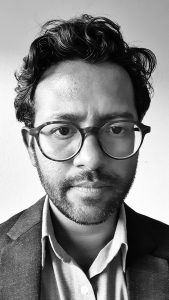 The new High Commissioner must be an uncompromising advocate for victims of human rights violations and abuses. He must not shy away from naming and shaming perpetrators just because they are powerful or influential. The High Commissioner has the responsibility to turn the world’s attention to grave violations in India, Bangladesh, and Pakistan or places like Kashmir, Baluchistan, and Papua, and strengthen the good work already being done by his office on countries like Myanmar, Afghanistan, Sri Lanka, and the Philippines. To do this, he must work with civil society and human rights defenders.
The new High Commissioner must be an uncompromising advocate for victims of human rights violations and abuses. He must not shy away from naming and shaming perpetrators just because they are powerful or influential. The High Commissioner has the responsibility to turn the world’s attention to grave violations in India, Bangladesh, and Pakistan or places like Kashmir, Baluchistan, and Papua, and strengthen the good work already being done by his office on countries like Myanmar, Afghanistan, Sri Lanka, and the Philippines. To do this, he must work with civil society and human rights defenders.
Ahmed Adam, Programme Manager, UN Advocacy, Asian Forum for Human Rights and Development (FORUM ASIA)
***
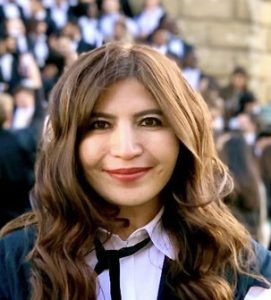
The new High Commissioner Volker Türk is taking an important role at a critical time in history. The inability of the Human Rights Council to adopt a resolution to discuss the UN report on the situation in Xinjiang is telling. This requires the incumbent to champion human rights and promote accountability. I hope he immediately takes up the Uyghur cause as his top priority in light of his predecessor’s findings. The Uyghurs deserve no less than any other impacted community. It’s time for everyone to defend the liberty and freedom of the Uyghur people to ensure families are reunited and end impunity against perpetrators of atrocity crimes regardless of how powerful they remain.
Rayhan E. Asat, Uyghur human rights lawyer and advocate
***
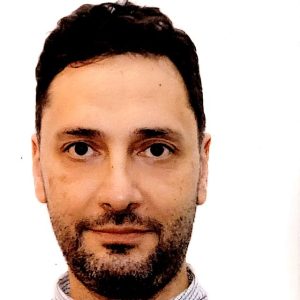
The number of crimes committed against women in Russia is increasing rapidly. This is facilitated by the decriminalisation of beating in Russia. After 16 March 2022, Russians will be deprived of the ECHR. A flood of complaints will go to the UN HumanRights Committee and CEDAW. Meanwhile, between 2017 and 2019, CEDAW has issued only three judgments concerning gender-based violence in Russia. The ECHR has communicated and issued twice as many similar decisions between 2019 and 2022. We would like to draw the attention of the High Commissioner to the need to prioritise the reform of the UN individual petition system as soon as possible.
Grigor Avetisyan, Stitching Justice Initiative, Russia
***
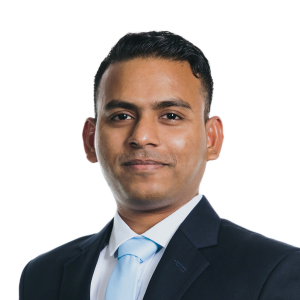 I urge the new High Commissioner for Human Rights to ensure that member States continue to be empowered and held accountable for upholding the human rights of refugees, ethnic and religious minorities, and LGBTIQ+ individuals. I further urge him to take influential steps to broaden the member States’ scope of protections for human rights defenders and persecuted individuals in order to expand his previous initiatives to address the interrelated global challenges based on trust, solidarity, and human rights.
I urge the new High Commissioner for Human Rights to ensure that member States continue to be empowered and held accountable for upholding the human rights of refugees, ethnic and religious minorities, and LGBTIQ+ individuals. I further urge him to take influential steps to broaden the member States’ scope of protections for human rights defenders and persecuted individuals in order to expand his previous initiatives to address the interrelated global challenges based on trust, solidarity, and human rights.
Tushar Baidya, Project Director, Inclusive Bangladesh
***
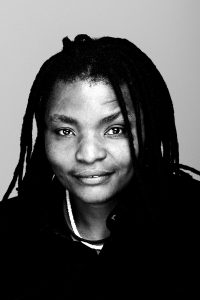 As an African Human Rights Defender working on SOGIESC rights, it is imperative to note that your office carries a great responsibility to recognise the realities of human rights violations experienced by members of the LGBTI community in Africa. Our human rights as members of the LGBTI community continuously go unrecognised as our States perpetuate homophobia, biphobia and transphobia, enact discriminatory legislation that criminalises our gender identities and sexual orientation, and fail to promote inclusion and mainstreaming of members of the LGBTI community within the national public policy. Thus I carry expectations of your office to ensure that our voices as SOGIESC Civil Society Organisations be considered as key stakeholders to advance our discourse of equality, justice and non-discrimination. Furthermore, I hope your office will engage African States on improving their commitments to the protection of all human rights and equality irrespective of one’s sexual orientation and gender identity.
As an African Human Rights Defender working on SOGIESC rights, it is imperative to note that your office carries a great responsibility to recognise the realities of human rights violations experienced by members of the LGBTI community in Africa. Our human rights as members of the LGBTI community continuously go unrecognised as our States perpetuate homophobia, biphobia and transphobia, enact discriminatory legislation that criminalises our gender identities and sexual orientation, and fail to promote inclusion and mainstreaming of members of the LGBTI community within the national public policy. Thus I carry expectations of your office to ensure that our voices as SOGIESC Civil Society Organisations be considered as key stakeholders to advance our discourse of equality, justice and non-discrimination. Furthermore, I hope your office will engage African States on improving their commitments to the protection of all human rights and equality irrespective of one’s sexual orientation and gender identity.
Linda Baumann, LGBT defender, Namibia
***
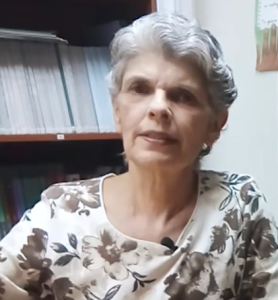 The High Commissioner must rescue the centrality of human rights throughout the UN system, by restoring the balance between the aspects of its mandate in technical assistance and protection; increased support for the work of special procedures and treaty bodies; and the creation of effective channels between Geneva and New York to permeate the discussions and decisions of the political bodies from a rights-based approach.
The High Commissioner must rescue the centrality of human rights throughout the UN system, by restoring the balance between the aspects of its mandate in technical assistance and protection; increased support for the work of special procedures and treaty bodies; and the creation of effective channels between Geneva and New York to permeate the discussions and decisions of the political bodies from a rights-based approach.
Ligia Bolívar, general coordinator AlertaVenezuela
***
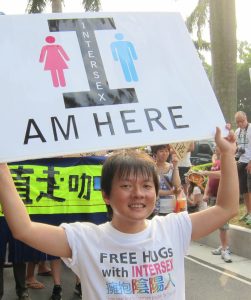
We optimistically anticipate that the incoming High Commissioner would prioritise engaging with States to investigate human rights violations against intersex people. We remain hopeful that the High Commissioner will take note of the human rightsconcerns of the intersex community and take action as per his mandate. We hope that his office contributes to the growing momentum towards the protection of intersex people against harmful practices in medical settings, discrimination, and improvement in access to health, education and labour markets. Considering the documented impact of the pandemic on intersex people, his office should encourage governments to be more inclusive in emergency response measures.
Hiker Chiu, Chair and Executive Director, Intersex Asia
***
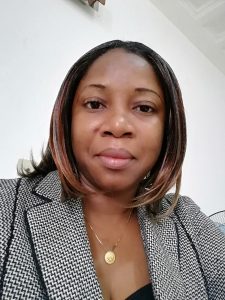
We extend our sincere congratulations to the new High Commissioner Volker Türk and salute the actions of Michelle Bachelet. We are conscious of the crucial role of the Office of the High Commissioner for Human Rights in supporting national human rights protection policies around the world, which we hope will be a priority of the new High Commissioner. We encourage the strengthening of international cooperation policies in the area of human rights and the rights of human rights defenders in countries in crisis and victims of terrorism. Our best wishes to Mr. Volker Türk.
Pédan Marthe Coulibaly, Coordinatrice Nationale de la Coalition Ivoirienne des Défenseurs des Droits Humains (CIDDH)
***
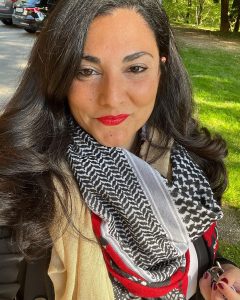 The mass mobilisation of feminist movements and women human rights defenders has enabled progress on sexual and reproductive rights in numerous countries and at the global level. It is therefore of crucial importance that the High Commissioner centers these issues in the exercise of his mandate to guarantee these recognised rights, prevent retrogression and support and protect women human rights defenders and activists working on sexual and reproductive rights. In the past decades, strong stances taken in favour of these rights by former High Commissioners have yielded positive impacts on the life of women and girls in all their diversity and people of diverse SOGIESC at the national level, and enabled normative development. Conversely, failure to hold governments accountable for violations of sexual and reproductive rights leads to retrogression and impunity.
The mass mobilisation of feminist movements and women human rights defenders has enabled progress on sexual and reproductive rights in numerous countries and at the global level. It is therefore of crucial importance that the High Commissioner centers these issues in the exercise of his mandate to guarantee these recognised rights, prevent retrogression and support and protect women human rights defenders and activists working on sexual and reproductive rights. In the past decades, strong stances taken in favour of these rights by former High Commissioners have yielded positive impacts on the life of women and girls in all their diversity and people of diverse SOGIESC at the national level, and enabled normative development. Conversely, failure to hold governments accountable for violations of sexual and reproductive rights leads to retrogression and impunity.
Paola Daher, Associate Director at Center for Reproductive Rights
***
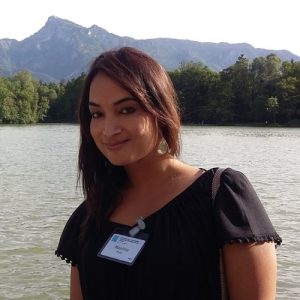 Persons with different sexual orientation and gender identity or expression and sex characteristics are discriminated against. Many times, policymakers categorise us as a disadvantaged group or marginalised group. I request you to explore who is in this group and to spell out these identities while you are dealing with human rights issues, not just disadvantaged or marginalised groups. Unless and until we are spelled out, it’s difficult to get disaggregated data/information on the violations of human rights against the LGBTIQ community.
Persons with different sexual orientation and gender identity or expression and sex characteristics are discriminated against. Many times, policymakers categorise us as a disadvantaged group or marginalised group. I request you to explore who is in this group and to spell out these identities while you are dealing with human rights issues, not just disadvantaged or marginalised groups. Unless and until we are spelled out, it’s difficult to get disaggregated data/information on the violations of human rights against the LGBTIQ community.
Manisha Dhakal, Transgender Activist, Blue Diamond Society, Nepal
***
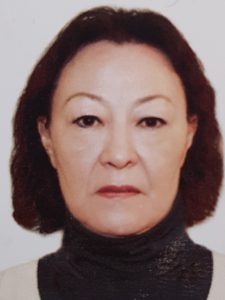
COVID-19 and the new era of competition for resources have created new challenges for already hard realities forenvironmental defenders on the ground. Mongolia, after adopting a human rights defenders law, has declared that it will investigate and penalise anyone who protests against strategic infrastructure projects to support more minerals, including coal extraction. This is interpreted by defenders as a derogation from all human rights commitments. Mongolia isn’t the only country that has taken this path. We are looking up to the UN High Commissioner to find solutions for this process of double-faced behavior of governments and businesses.
Sukhgerel Dugersuren, Director, OT Watch Mongolia
***
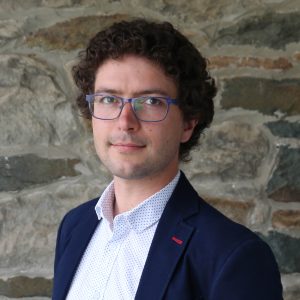 High Commissioner Türk begins his tenure at a critical turning point: the climate crisis is already one of the greatest threats to humanity, and immediate action is necessary if we are to avert its intensification. The ongoing production and use of fossil fuels are at the center of this and other human rights and environmental crises, including the war in Ukraine and attacks on civic space in many producing countries. Still, many States are choosing to delay action and pursue false solutions instead of adopting and implementing the immediate phase down that is required. The UNGA’s recent recognition of the right to a clean, healthy, and sustainable environment and the UN General Secretary’s continued denouncement of dependence on fossil fuels lays a favorable foundation. Now, the High Commissioner must mobilise his Office to spur States, institutions, and civil society to meaningfully address the systemic threats posed by the triple planetary crisis.
High Commissioner Türk begins his tenure at a critical turning point: the climate crisis is already one of the greatest threats to humanity, and immediate action is necessary if we are to avert its intensification. The ongoing production and use of fossil fuels are at the center of this and other human rights and environmental crises, including the war in Ukraine and attacks on civic space in many producing countries. Still, many States are choosing to delay action and pursue false solutions instead of adopting and implementing the immediate phase down that is required. The UNGA’s recent recognition of the right to a clean, healthy, and sustainable environment and the UN General Secretary’s continued denouncement of dependence on fossil fuels lays a favorable foundation. Now, the High Commissioner must mobilise his Office to spur States, institutions, and civil society to meaningfully address the systemic threats posed by the triple planetary crisis.
Sébastien Duyck, Center for International Environmental Law (CIEL)
***
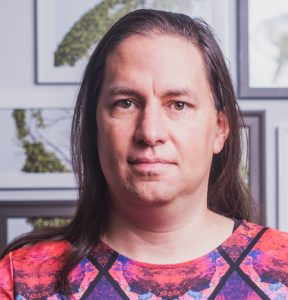 At a time when universal human rights are increasingly under threat, and mechanisms to defend them are subject to mounting multilateral pressure, Türk’s role is more important than ever. The new UN High Commissioner must demonstrate his unwavering support to the promotion and protection of the human rights of all, unequivocally including people of diverse sexual orientations, gender identities and expressions, and sex characteristics. The UN High Commissioner’s office has been pivotal in including SOGIESC issues in their work and has been a tireless voice in support of our movements internally and externally. ILGA World hopes that Volker Türk will continue this legacy and enhance his engagement with LGBTI communities worldwide.
At a time when universal human rights are increasingly under threat, and mechanisms to defend them are subject to mounting multilateral pressure, Türk’s role is more important than ever. The new UN High Commissioner must demonstrate his unwavering support to the promotion and protection of the human rights of all, unequivocally including people of diverse sexual orientations, gender identities and expressions, and sex characteristics. The UN High Commissioner’s office has been pivotal in including SOGIESC issues in their work and has been a tireless voice in support of our movements internally and externally. ILGA World hopes that Volker Türk will continue this legacy and enhance his engagement with LGBTI communities worldwide.
Julia Ehrt, ILGA World
***
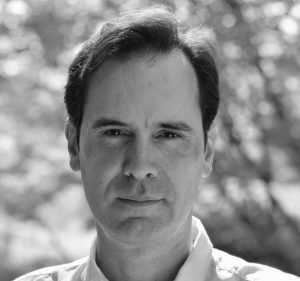 Dear High Commissioner, as you are becoming the new guardian of our common treasure – the UN human rights protection system – here are a few suggestions based on past experiences: Break the silos! The institution you are about to lead is fragmented. It is already weak because it is underfunded, but this fragmentation wastes energy and undermines its effectiveness. It is your responsibility to make sure that the Office “delivers as one.” New communication and coordination processes must be created, especially between field entities and the headquarters. New digital tools can help make the flow of information more fluid and ensure that each component acts in concert. You are meant to be the conductor!
Dear High Commissioner, as you are becoming the new guardian of our common treasure – the UN human rights protection system – here are a few suggestions based on past experiences: Break the silos! The institution you are about to lead is fragmented. It is already weak because it is underfunded, but this fragmentation wastes energy and undermines its effectiveness. It is your responsibility to make sure that the Office “delivers as one.” New communication and coordination processes must be created, especially between field entities and the headquarters. New digital tools can help make the flow of information more fluid and ensure that each component acts in concert. You are meant to be the conductor!
Olivier de Frouville, Professor of Public Law and Member of the UN Committee on Enforced Disappearances
***
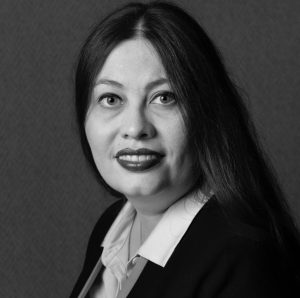
After the expulsion of Russia from the Council of Europe, it is expected that thousands of individual complaints against Russia will be submitted to the UN treaty bodies instead of the ECHR. Given the fact that the backlog of individual communications pending before the treaty bodies has increased by 134% between 2015 and 2021, we believe that the High Commissioner should urgently improve and resource the OHCHR Petitions and Urgent Action Section, namely: increase the Section’s staff and introduce innovative approaches of examining the complaints including those already developed by the ECHR.
Tatiana Glushkova, HRDC Memorial, Russia
***
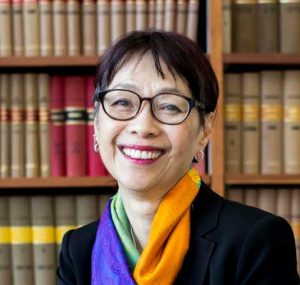 The High Commissioner faces serious challenges in terms of the integrity, independence, and effectiveness of the Office. To address these challenges in an informed and inclusive way, Human Rights in China (HRIC) urges Mr. Volker Türk to convene regular civil society meetings, including with local rights defenders. The High Commissioner must also send a strong message to counter China’s aggressive efforts to undermine the universality of human rights, promote a “national conditions” approach, and reject accountability. One concrete step would be to avoid uncritically advancing Beijing’s official narratives. Mr. Türk must also publicly and unequivocally support the OHCHR Xinjiang report.
The High Commissioner faces serious challenges in terms of the integrity, independence, and effectiveness of the Office. To address these challenges in an informed and inclusive way, Human Rights in China (HRIC) urges Mr. Volker Türk to convene regular civil society meetings, including with local rights defenders. The High Commissioner must also send a strong message to counter China’s aggressive efforts to undermine the universality of human rights, promote a “national conditions” approach, and reject accountability. One concrete step would be to avoid uncritically advancing Beijing’s official narratives. Mr. Türk must also publicly and unequivocally support the OHCHR Xinjiang report.
Sharon Hom, Executive Director, Human Rights in China (HRIC)
***
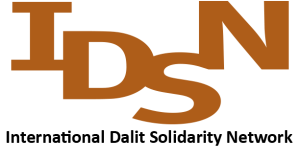 The International Dalit Solidarity Network welcomes Volker Türk to his role as the UN High Commissioner for Human Rights. We hope that he will shine a spotlight on Dalit rights as his predecessors have done before him. It is time to end the deeply unjust practice of caste discrimination, severely affecting the human rights of millions across the globe. Caste discrimination is a root cause of slavery, sexual violence, poverty and a lack of access to justice and basic services. Hearing and prioritising the voices of those at the margins, including Dalits discriminated on the basis of caste, is the first step to ensuring their rights are respected. Dalit human rights defenders show enormous courage every day – the world must stand in solidarity with them to ensure they always have a global platform to speak from.
The International Dalit Solidarity Network welcomes Volker Türk to his role as the UN High Commissioner for Human Rights. We hope that he will shine a spotlight on Dalit rights as his predecessors have done before him. It is time to end the deeply unjust practice of caste discrimination, severely affecting the human rights of millions across the globe. Caste discrimination is a root cause of slavery, sexual violence, poverty and a lack of access to justice and basic services. Hearing and prioritising the voices of those at the margins, including Dalits discriminated on the basis of caste, is the first step to ensuring their rights are respected. Dalit human rights defenders show enormous courage every day – the world must stand in solidarity with them to ensure they always have a global platform to speak from.
International Dalit Solidarity Network
***
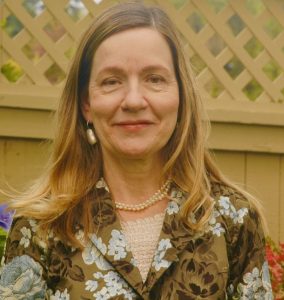 High Commissioner, your advocacy is essential to renew the commitment of governments to international human rights at a time when they are sadly waning. Your robust support to other actors who are part of the UN human rights system, such as treaty bodies scrutinising human rights globally, would significantly boost the prospect of achieving progress on international human rights protection. This requires your strong leadership and engagement on management, finance and accountability as per the Office of Internal Oversight Services report (August 2021) for the sake of rights holders who seek and expect justice from treaty bodies.
High Commissioner, your advocacy is essential to renew the commitment of governments to international human rights at a time when they are sadly waning. Your robust support to other actors who are part of the UN human rights system, such as treaty bodies scrutinising human rights globally, would significantly boost the prospect of achieving progress on international human rights protection. This requires your strong leadership and engagement on management, finance and accountability as per the Office of Internal Oversight Services report (August 2021) for the sake of rights holders who seek and expect justice from treaty bodies.
Marcia V. J. Kran, International Justice and Development Consultant | Canada, Member UN Human Rights Committee
***
 The world is facing serious challenges followed by a multitude of victims. Russian aggression against Ukraine is a tragedy. The High Commissioner should mainstream the reforming of the existing UN individual communication system and prioritise the growing backlog problem. It is upon States to give the Office of the UN High Commissioner for Human Rights resources for staffing needs, alongside work practices that allow a decrease of the waiting time before recurring violations are dealt with. Considering the legal nature of “views”, a more stringent definition of redress for victims is needed. Otherwise, victims’ voices may not be heard timely.
The world is facing serious challenges followed by a multitude of victims. Russian aggression against Ukraine is a tragedy. The High Commissioner should mainstream the reforming of the existing UN individual communication system and prioritise the growing backlog problem. It is upon States to give the Office of the UN High Commissioner for Human Rights resources for staffing needs, alongside work practices that allow a decrease of the waiting time before recurring violations are dealt with. Considering the legal nature of “views”, a more stringent definition of redress for victims is needed. Otherwise, victims’ voices may not be heard timely.
Lena Lipatova, OVD-Info, Russia
***
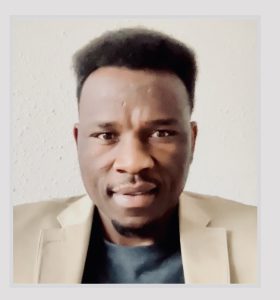 The High Commissioner should prioritise the protection of human rights defenders and other civil society actors. Reprisals restrict civic space. In recent years there has been a proliferation of legislation restricting civic freedoms, including laws with the purported aim of tackling disinformation or incitement but the actual effect of censoring dissent. Recent years have also, however, shown civil society’s resilience in operating against all odds. The High Commissioner should bolster existing good practices within and outside OHCHR, investing resources in establishing and strengthening dependable national and international networks, reinforcing the three-way dialogue between civil society, OHCHR and government.
The High Commissioner should prioritise the protection of human rights defenders and other civil society actors. Reprisals restrict civic space. In recent years there has been a proliferation of legislation restricting civic freedoms, including laws with the purported aim of tackling disinformation or incitement but the actual effect of censoring dissent. Recent years have also, however, shown civil society’s resilience in operating against all odds. The High Commissioner should bolster existing good practices within and outside OHCHR, investing resources in establishing and strengthening dependable national and international networks, reinforcing the three-way dialogue between civil society, OHCHR and government.
Abdul Aziz Muhamat, migrant rights defender and 2019 Martin Ennals Award for Human Rights Defenders Laureate
***
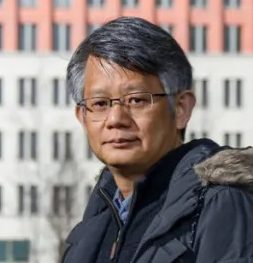 Hong Kong is currently experiencing a critical human rights catastrophe. Since the Chinese government forcibly implemented the National Security Law in Hong Kong, human rights and freedoms have taken a serious setback. We hope that the new High Commissioner for Human Rights can intervene into the human rights crisis in Hong Kong as soon as possible. Don’t hold back because of the great influence of the Chinese government. The stronger the opponent, the more we need to show our determination in defending human rights. In addition, the political surveillance in Hong Kong is becoming increasingly severe, and it has become more difficult for civil society organisations to express their opinions as freely as before. We hope that the new High Commissioner can establish diversified channels and methods, including communicating with groups and people in exile, in order to have a more comprehensive understanding of the oppressed people’s voices from Hong Kong.
Hong Kong is currently experiencing a critical human rights catastrophe. Since the Chinese government forcibly implemented the National Security Law in Hong Kong, human rights and freedoms have taken a serious setback. We hope that the new High Commissioner for Human Rights can intervene into the human rights crisis in Hong Kong as soon as possible. Don’t hold back because of the great influence of the Chinese government. The stronger the opponent, the more we need to show our determination in defending human rights. In addition, the political surveillance in Hong Kong is becoming increasingly severe, and it has become more difficult for civil society organisations to express their opinions as freely as before. We hope that the new High Commissioner can establish diversified channels and methods, including communicating with groups and people in exile, in order to have a more comprehensive understanding of the oppressed people’s voices from Hong Kong.
Christopher Mung, Executive Director of Hong Kong Labour Rights Monitor
***
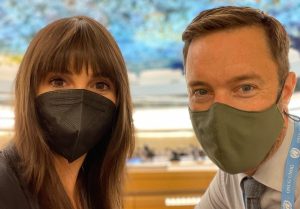 Digital risk infuses the UN Human Rights mandate, including all Special Procedures, Council reports, and resolutions. We want to support you in navigating digital technologies through a human rights lens. We are deeply concerned about shrinking civic space and rising digital authoritarianism through internet shutdowns, targeted surveillance, cyber and physical attacks on critical broadcast and communications infrastructure, and disinformation and smear campaigns, particularly during crises, conflicts, and war. These attacks compound the insecurity of communities at risk of marginalisation and vulnerability, including women in all their diversity, LGBTQI+ persons, persons with disabilities, displaced populations and people on the move, and human rights defenders.
Digital risk infuses the UN Human Rights mandate, including all Special Procedures, Council reports, and resolutions. We want to support you in navigating digital technologies through a human rights lens. We are deeply concerned about shrinking civic space and rising digital authoritarianism through internet shutdowns, targeted surveillance, cyber and physical attacks on critical broadcast and communications infrastructure, and disinformation and smear campaigns, particularly during crises, conflicts, and war. These attacks compound the insecurity of communities at risk of marginalisation and vulnerability, including women in all their diversity, LGBTQI+ persons, persons with disabilities, displaced populations and people on the move, and human rights defenders.
Laura O’Brien and Peter Micek, Access Now
***
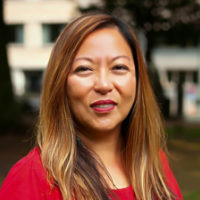 With the hundreds of communities of Human Rights Defenders (HRDs) that we stand with and support across Latin America, Africa, Europe and Asia, on behalf of Protection International (PI), we ask that throughout your mandate, you prioritise the protection of HRDs from a collective and preventative approach, and ensure a strong inter-sectional and women’s rights lens across your engagements with States and institutions. We attest that public policies for HRDs protection are vital in achieving enabling environments for the right to defend human rights, and we encourage you to promote their development and ensure robust resourcing in your interactions with States and institutions. We also underline the importance of aligning your mandate with the SDG 2030 agenda. Finally, you can count on Protection International as a key organisation in the field of protection and prevention mechanisms for HRDs to share stories and experiences from the ground, provide advice and expert feedback, and where needed circulate and share developments and information from your office.
With the hundreds of communities of Human Rights Defenders (HRDs) that we stand with and support across Latin America, Africa, Europe and Asia, on behalf of Protection International (PI), we ask that throughout your mandate, you prioritise the protection of HRDs from a collective and preventative approach, and ensure a strong inter-sectional and women’s rights lens across your engagements with States and institutions. We attest that public policies for HRDs protection are vital in achieving enabling environments for the right to defend human rights, and we encourage you to promote their development and ensure robust resourcing in your interactions with States and institutions. We also underline the importance of aligning your mandate with the SDG 2030 agenda. Finally, you can count on Protection International as a key organisation in the field of protection and prevention mechanisms for HRDs to share stories and experiences from the ground, provide advice and expert feedback, and where needed circulate and share developments and information from your office.
Mae Ocampo, Executive Director at Protection International
***
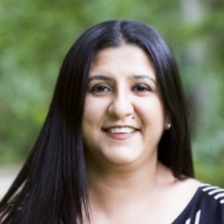
We encourage the incoming High Commissioner Volker Türk to highlight the unique role of the HRC: its mechanisms andprocedures can and should play a role in preventing and responding to atrocity crimes, regardless of where they occur. In his role, he should make regular use of inter-sessional briefings to governments for emerging crises, maximise the Office’s early warning capacities for situations at risk, and strongly support accountability efforts for victims of genocide, war crimes, crimes against humanity or ethnic cleansing.
Savita Pawnday, Executive Director of the Global Centre for the Responsibility to Protect
***
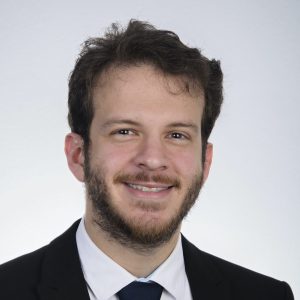 In spite of the recent WHO guideline on abortion, several States continue to restrict disproportionately access to reproductive health rights. El Salvador, Nicaragua and Honduras, among many others, continue to have full bans on abortion that lead to more maternal deaths, arbitrary criminalisation of women who suffer obstetric emergencies, and leads to increased suffering for many women, and most importantly, girls and adolescents. The Venezuelan complex humanitarian emergency also requires your attention, as it has disproportionate impacts on women as well. Along with the gross human rights violations identified by the Fact-Finding Mission recently, access to health services for women is extremely limited, with lack of contraceptives and of reproductive healthcare driving women to migrate against their will, and exposing them to different forms of violence in neighboring countries, including but not limited to trafficking.
In spite of the recent WHO guideline on abortion, several States continue to restrict disproportionately access to reproductive health rights. El Salvador, Nicaragua and Honduras, among many others, continue to have full bans on abortion that lead to more maternal deaths, arbitrary criminalisation of women who suffer obstetric emergencies, and leads to increased suffering for many women, and most importantly, girls and adolescents. The Venezuelan complex humanitarian emergency also requires your attention, as it has disproportionate impacts on women as well. Along with the gross human rights violations identified by the Fact-Finding Mission recently, access to health services for women is extremely limited, with lack of contraceptives and of reproductive healthcare driving women to migrate against their will, and exposing them to different forms of violence in neighboring countries, including but not limited to trafficking.
Edward Peréz, Senior Legal Advisor at Center for Reproductive Rights
***
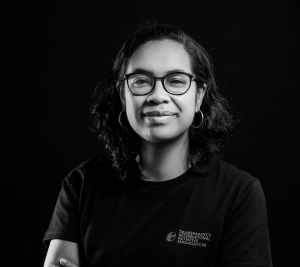 The High Commissioner must prompt governments to protect Human Rights Defenders (HRDs) and make their voiceheard. He must ask them to stop harassing and threatening HRDs. And if governments don’t comply, he must seek means of sanctions.
The High Commissioner must prompt governments to protect Human Rights Defenders (HRDs) and make their voiceheard. He must ask them to stop harassing and threatening HRDs. And if governments don’t comply, he must seek means of sanctions.
Ketakandriana Rafitoson, Executive Director, Transparency International Initiative Madagascar
***
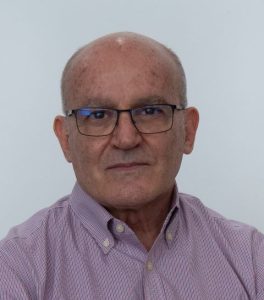
Given our experience with officers from the OHCHR on the ground in Venezuela, I trust High Commissioner Türk will not only ask of the Venezuelan authorities real and substantive commitment and changes regarding compliance with recommendations based on the technical assistance being provided, but also truly fulfill his protection mandate even if it results in tensions. His predecessor toned down her voice for the sake of access, and this was detrimental to real advances regarding the human rights crisis in Venezuela. We also expect him to give particular attention to social and environmental rights, severely affected by the humanitarian emergency.
Feliciano Reyna, President of Acción Solidaria and Civilis Human Rights, Venezuela
***
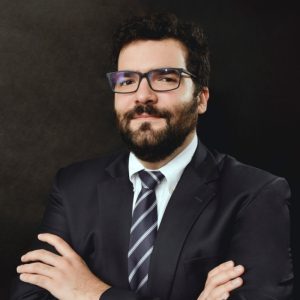 While some States have adopted measures to prevent, investigate, and protect against violence towards human rights defenders, the lack of differential scopes undermines the measures for LGBTQ+ defenders. For example, the institutional offer of protection involves parties who are usually held accountable by SOGIE activism such as the police. Therefore LGBTQ+ defenders sometimes avoid activating State mechanisms out of security concerns. We urge the High Commissioner Volker Türk to support LGBTQ+ defenders in their engagement with protection and prevention mechanisms that take into consideration a SOGIE scope.
While some States have adopted measures to prevent, investigate, and protect against violence towards human rights defenders, the lack of differential scopes undermines the measures for LGBTQ+ defenders. For example, the institutional offer of protection involves parties who are usually held accountable by SOGIE activism such as the police. Therefore LGBTQ+ defenders sometimes avoid activating State mechanisms out of security concerns. We urge the High Commissioner Volker Türk to support LGBTQ+ defenders in their engagement with protection and prevention mechanisms that take into consideration a SOGIE scope.
Juan Felipe Rivera Osorio, Advocacy & Litigation Coordinator, Colombia Diversa
***
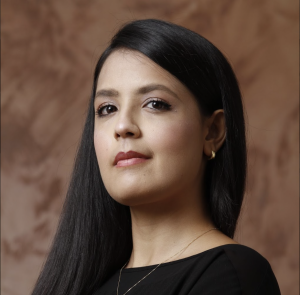 The closure of civic and democratic spaces increases in the world and the use of anti-terrorism and organised crime legislation is increasingly used to criminalise under the logic of the enemy and limit the work of people and organisations that defend human rights, increasing the risks and reprisals for the exercise of their work. Mr. Türk, faced with this scenario and the resulting risks for civil society, the Office of the United Nations High Commissioner for Human Rights must prioritise and assume a strong and clear voice to call for States to guarantee and promote favourable and safe environments for the defense, demand, and promotion of human rights and to ensure the protection of human rights defenders.
The closure of civic and democratic spaces increases in the world and the use of anti-terrorism and organised crime legislation is increasingly used to criminalise under the logic of the enemy and limit the work of people and organisations that defend human rights, increasing the risks and reprisals for the exercise of their work. Mr. Türk, faced with this scenario and the resulting risks for civil society, the Office of the United Nations High Commissioner for Human Rights must prioritise and assume a strong and clear voice to call for States to guarantee and promote favourable and safe environments for the defense, demand, and promotion of human rights and to ensure the protection of human rights defenders.
Marianna A. Romero, Director at the Center for Human Rights Defenders and Justice (CDJ), Venezuela
***
 Encourage and reinforce the connections between peacebuilding and human rights both in principle and in practice, i.e. how the UN system operationalises this connection in its HQ-bodies’ work and more importantly in their work in the field.
Encourage and reinforce the connections between peacebuilding and human rights both in principle and in practice, i.e. how the UN system operationalises this connection in its HQ-bodies’ work and more importantly in their work in the field.
Gay Rosenblum-Kumar, UN Representative, Peace Direct
***
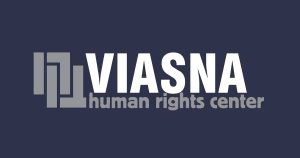 We are outraged by the decision of the Belarusian government to denounce the Optional Protocol to the International Covenant on Civil and Political Rights on filing individual complaints with the UNHRC. The reaction of the UN High Commissioner is extremely important to us. We would be very grateful if Belarusian individual complaints were dealt with faster, as the Belarusian regime continues to massively violate human rights. Every civil servant, every judge must understand that, by making unjust decisions, they violate the norms of international law and these violations will not go unnoticed. An increase in the number of employees who will consider individual complaints is necessary.
We are outraged by the decision of the Belarusian government to denounce the Optional Protocol to the International Covenant on Civil and Political Rights on filing individual complaints with the UNHRC. The reaction of the UN High Commissioner is extremely important to us. We would be very grateful if Belarusian individual complaints were dealt with faster, as the Belarusian regime continues to massively violate human rights. Every civil servant, every judge must understand that, by making unjust decisions, they violate the norms of international law and these violations will not go unnoticed. An increase in the number of employees who will consider individual complaints is necessary.
Viktoryia Rudziankova, Human Rights Center “Viasna”, Belarus
***
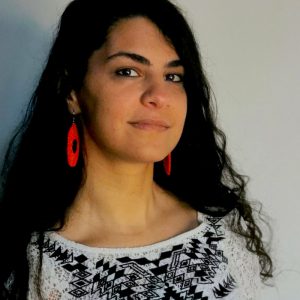 The UN High Commissioner should work to end corporate capture of UN decision-making by restricting the participation of private stakeholders to one where they may only receive instructions on compliance with international law and where they are reviewed and held accountable where violations or abuses have occurred. The High Commissioner should also work to remedy the current colonial legacies influencing the UN Office at times. This requires an end to double standards in how international law is applied – highlighting specifically the discrepancies between how actionable and effective it can be for some situations (Ukraine and Russia) and how seemingly futile and slow-moving it is when it comes to other situations (Palestine and Israel, Yemen, Saudi Arabia and Bahrain, for example). This dangerously undermines international law and leads to further division between us all.
The UN High Commissioner should work to end corporate capture of UN decision-making by restricting the participation of private stakeholders to one where they may only receive instructions on compliance with international law and where they are reviewed and held accountable where violations or abuses have occurred. The High Commissioner should also work to remedy the current colonial legacies influencing the UN Office at times. This requires an end to double standards in how international law is applied – highlighting specifically the discrepancies between how actionable and effective it can be for some situations (Ukraine and Russia) and how seemingly futile and slow-moving it is when it comes to other situations (Palestine and Israel, Yemen, Saudi Arabia and Bahrain, for example). This dangerously undermines international law and leads to further division between us all.
Mona Sabella, Corporate Accountability Coordinator, ESCR-Net
***
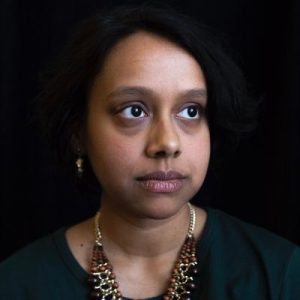 Human rights are under attack but they are not in retreat. Across the world, people are fighting for their rights and communities; it is those who should be supporting them – governments and institutions – who are receding. We need a High Commissioner who prioritises civil society, addresses barriers to inclusion and acts when defenders are attacked; who understands that while the frontlines may be different – climate, tech, inequality – the same battles remain; who works with those in power but doesn’t wait for their permission to defend the principles of the UN Charter and Universal Declaration of Human Rights; and who stands up for the vulnerable and up to abusers, whoever they may be.
Human rights are under attack but they are not in retreat. Across the world, people are fighting for their rights and communities; it is those who should be supporting them – governments and institutions – who are receding. We need a High Commissioner who prioritises civil society, addresses barriers to inclusion and acts when defenders are attacked; who understands that while the frontlines may be different – climate, tech, inequality – the same battles remain; who works with those in power but doesn’t wait for their permission to defend the principles of the UN Charter and Universal Declaration of Human Rights; and who stands up for the vulnerable and up to abusers, whoever they may be.
Natalie Samarasinghe, Global Director, Advocacy, Open Society Foundations
***
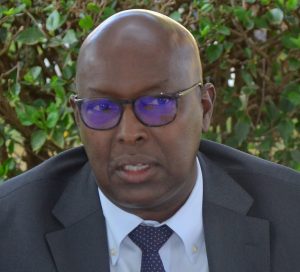 High Commissioner, we highlight 3 key challenges: 1. PREVENTION: You should help operationalise Human Rights Council resolution 45/31 by strengthening OHCHR’s work regarding early warning signs and risks of emergencies. You should use inter-sessional briefings more often to bring information to States’ attention. 2. REPORTING: You have a universal mandate and can report on situations that aren’t formally on the Council’s agenda. Irrespective of reports the Council requests, it’s your duty to document and expose violations wherever they occur. 3. CIVIC SPACE: Your work is essential to both identify positive developments and mounting crises (repression against civil society being a key criterion).
High Commissioner, we highlight 3 key challenges: 1. PREVENTION: You should help operationalise Human Rights Council resolution 45/31 by strengthening OHCHR’s work regarding early warning signs and risks of emergencies. You should use inter-sessional briefings more often to bring information to States’ attention. 2. REPORTING: You have a universal mandate and can report on situations that aren’t formally on the Council’s agenda. Irrespective of reports the Council requests, it’s your duty to document and expose violations wherever they occur. 3. CIVIC SPACE: Your work is essential to both identify positive developments and mounting crises (repression against civil society being a key criterion).
Hassan Shire, Executive Director at the East and Horn of Africa Human Rights Defenders Project (DefendDefenders)
***
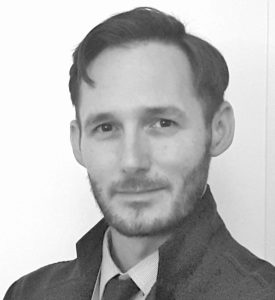 Communities struggling for human rights and freedom across the Middle East and North Africa are under threat of being annihilated through increasingly brazen and brutal campaigns of repression. Individuals are murdered, disappeared, tortured and imprisoned. Organisations are forcefully closed, have funding cut off and are prosecuted under terrorism and sedition laws. Quiet diplomacy and technical cooperation have had little to no effect on this trend. Increasingly, States are choosing to turn a blind eye to this reality. More than ever, those struggling for human rights need a champion that calls out violators and helps to mobilise international will to address critical human rights situations.
Communities struggling for human rights and freedom across the Middle East and North Africa are under threat of being annihilated through increasingly brazen and brutal campaigns of repression. Individuals are murdered, disappeared, tortured and imprisoned. Organisations are forcefully closed, have funding cut off and are prosecuted under terrorism and sedition laws. Quiet diplomacy and technical cooperation have had little to no effect on this trend. Increasingly, States are choosing to turn a blind eye to this reality. More than ever, those struggling for human rights need a champion that calls out violators and helps to mobilise international will to address critical human rights situations.
Jeremie Smith, Director, Geneva Office, Cairo Institute for Human Rights Studies
***
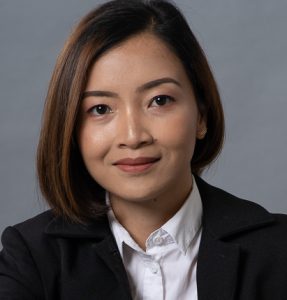 Karapatan welcomes High Commissioner for Human Rights Volker Türk in his new role. These are very challenging times for all human rights defenders all over the world, including those of us in the Philippines where civic space has been on a steep course downward. We hope that Mr. Türk will continue to carry out the OHCHR’s mandate to promote and protect human rights, and to pursue accountability and justice for victims of rights violations. Filipino human rights defenders are eager to interact closely and engage with Mr. Türk.
Karapatan welcomes High Commissioner for Human Rights Volker Türk in his new role. These are very challenging times for all human rights defenders all over the world, including those of us in the Philippines where civic space has been on a steep course downward. We hope that Mr. Türk will continue to carry out the OHCHR’s mandate to promote and protect human rights, and to pursue accountability and justice for victims of rights violations. Filipino human rights defenders are eager to interact closely and engage with Mr. Türk.
Maria Sol Taule, Legal Counsel at KARAPATAN Alliance Philippines
***
 As the proverbial conscience of the United Nations, the High Commissioner is expected to be a fearless defender of human rights. Where possible, they should act on early warning signs of abuses through preventative diplomacy and targeted interventions to stop violations. When violations occur, the High Commissioner should be relentless in pursuing justice for victims. In times of constrained civic space, we hope the High Commissioner will make it a priority to build strong, lasting relationships with civil society. He should be a champion for those who work daily to defend human rights.
As the proverbial conscience of the United Nations, the High Commissioner is expected to be a fearless defender of human rights. Where possible, they should act on early warning signs of abuses through preventative diplomacy and targeted interventions to stop violations. When violations occur, the High Commissioner should be relentless in pursuing justice for victims. In times of constrained civic space, we hope the High Commissioner will make it a priority to build strong, lasting relationships with civil society. He should be a champion for those who work daily to defend human rights.
Mandeep Tiwana, Chief Programmes Officer and Representative to the UN at CIVICUS
***
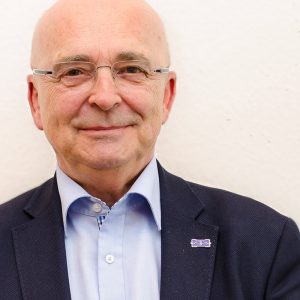
The new High Commissioner should have three key priorities on his agenda: tackling torture and inhuman and degrading treatment, preventing the prosecution of environment protection activists, and enhancing the right to food and water, so that everyone can live in dignity on a healthy and sustainable planet.
Mirosław Wyrzykowski, Human rights defender and jurist, Poland
***
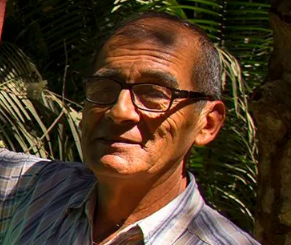 Require the Peruvian State to respond to the communication from 5 Special Rapporteurs that ask to report on the progress in the case of the murder of Roberto Carlos Pacheco Villanueva and on the investigations into threats against Demetrio Pachecho and other defenders. Likewise, the Peruvian State should have taken into account the recommendations contained in the report by Special Rapporteur Michel Forst, on the risks to which defenders are exposed when they participate in fiscal proceedings at the request of the Public Ministry. It is urgent that comprehensive care is not neglected in the face of the expansion of illegal economies in the Amazon.
Require the Peruvian State to respond to the communication from 5 Special Rapporteurs that ask to report on the progress in the case of the murder of Roberto Carlos Pacheco Villanueva and on the investigations into threats against Demetrio Pachecho and other defenders. Likewise, the Peruvian State should have taken into account the recommendations contained in the report by Special Rapporteur Michel Forst, on the risks to which defenders are exposed when they participate in fiscal proceedings at the request of the Public Ministry. It is urgent that comprehensive care is not neglected in the face of the expansion of illegal economies in the Amazon.
Victor Zambrano, environmental defender from Madre de Dios in Peru
Photos were provided by each quote author.
Download as PDF


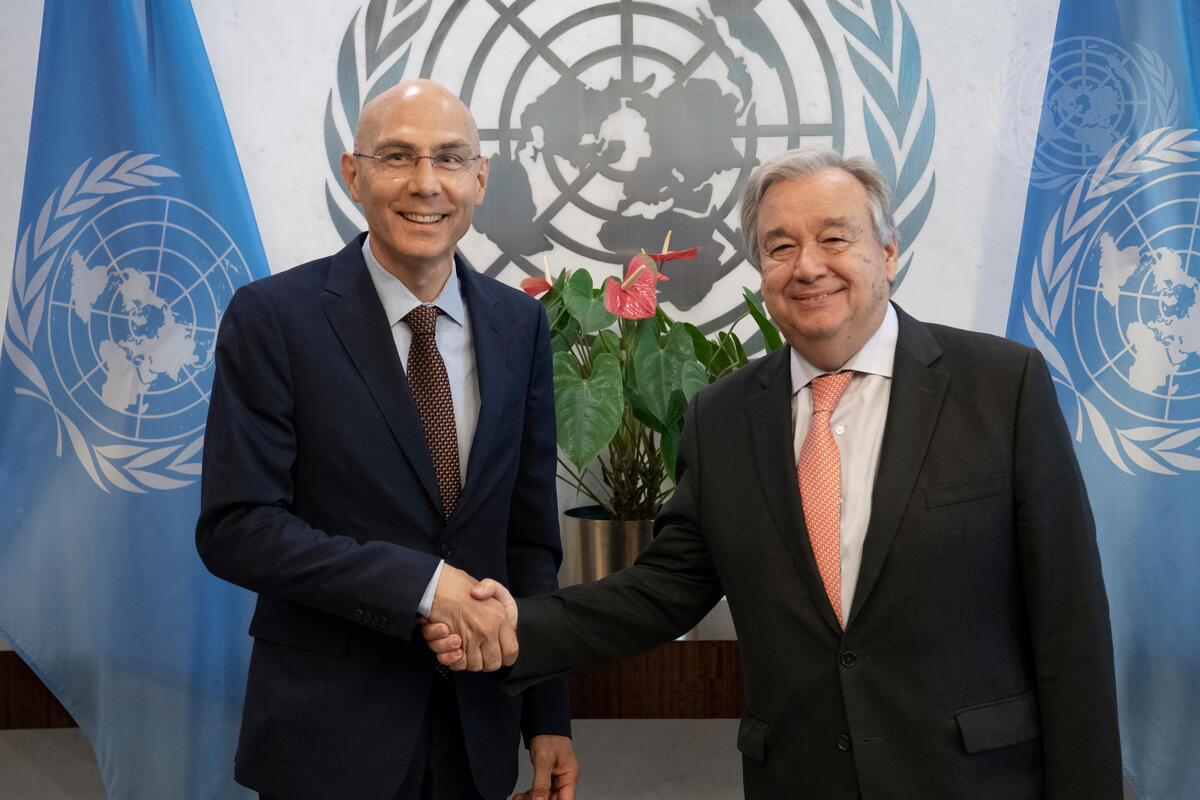



 I urge the new High Commissioner for Human Rights to ensure that member States continue to be empowered and held accountable for upholding the human rights of refugees, ethnic and religious minorities, and LGBTIQ+ individuals. I further urge him to take influential steps to broaden the member States’ scope of protections for human rights defenders and persecuted individuals in order to expand his previous initiatives to address the interrelated global challenges based on trust, solidarity, and human rights.
I urge the new High Commissioner for Human Rights to ensure that member States continue to be empowered and held accountable for upholding the human rights of refugees, ethnic and religious minorities, and LGBTIQ+ individuals. I further urge him to take influential steps to broaden the member States’ scope of protections for human rights defenders and persecuted individuals in order to expand his previous initiatives to address the interrelated global challenges based on trust, solidarity, and human rights. As an African Human Rights Defender working on SOGIESC rights, it is imperative to note that your office carries a great responsibility to recognise the realities of human rights violations experienced by members of the LGBTI community in Africa.
As an African Human Rights Defender working on SOGIESC rights, it is imperative to note that your office carries a great responsibility to recognise the realities of human rights violations experienced by members of the LGBTI community in Africa.  The High Commissioner must rescue the centrality of human rights throughout the UN system, by restoring the balance between the aspects of its mandate in technical assistance and protection; increased support for the work of special procedures and treaty bodies; and the creation of effective channels between Geneva and New York to permeate the discussions and decisions of the political bodies from a rights-based approach.
The High Commissioner must rescue the centrality of human rights throughout the UN system, by restoring the balance between the aspects of its mandate in technical assistance and protection; increased support for the work of special procedures and treaty bodies; and the creation of effective channels between Geneva and New York to permeate the discussions and decisions of the political bodies from a rights-based approach.

 The mass mobilisation of feminist movements and women human rights defenders has enabled progress on sexual and reproductive rights in numerous countries and at the global level. It is therefore of crucial importance that the High Commissioner centers these issues in the exercise of his mandate to guarantee these recognised rights, prevent retrogression and support and protect women human rights defenders and activists working on sexual and reproductive rights. In the past decades, strong stances taken in favour of these rights by former High Commissioners have yielded positive impacts on the life of women and girls in all their diversity and people of diverse SOGIESC at the national level, and enabled normative development. Conversely, failure to hold governments accountable for violations of sexual and reproductive rights leads to retrogression and impunity.
The mass mobilisation of feminist movements and women human rights defenders has enabled progress on sexual and reproductive rights in numerous countries and at the global level. It is therefore of crucial importance that the High Commissioner centers these issues in the exercise of his mandate to guarantee these recognised rights, prevent retrogression and support and protect women human rights defenders and activists working on sexual and reproductive rights. In the past decades, strong stances taken in favour of these rights by former High Commissioners have yielded positive impacts on the life of women and girls in all their diversity and people of diverse SOGIESC at the national level, and enabled normative development. Conversely, failure to hold governments accountable for violations of sexual and reproductive rights leads to retrogression and impunity.  Persons with different sexual orientation and gender identity or expression and sex characteristics are discriminated against. Many times, policymakers categorise us as a disadvantaged group or marginalised group. I request you to explore who is in this group and to spell out these identities while you are dealing with human rights issues, not just disadvantaged or marginalised groups. Unless and until we are spelled out, it’s difficult to get disaggregated data/information on the violations of human rights against the LGBTIQ community.
Persons with different sexual orientation and gender identity or expression and sex characteristics are discriminated against. Many times, policymakers categorise us as a disadvantaged group or marginalised group. I request you to explore who is in this group and to spell out these identities while you are dealing with human rights issues, not just disadvantaged or marginalised groups. Unless and until we are spelled out, it’s difficult to get disaggregated data/information on the violations of human rights against the LGBTIQ community.
 High Commissioner Türk begins his tenure at a critical turning point: the climate crisis is already one of the greatest threats to humanity, and immediate action is necessary if we are to avert its intensification. The ongoing production and use of fossil fuels are at the center of this and other human rights and environmental crises, including the war in Ukraine and attacks on civic space in many producing countries. Still, many States are choosing to delay action and pursue false solutions instead of adopting and implementing the immediate phase down that is required. The UNGA’s recent recognition of the right to a clean, healthy, and sustainable environment and the UN General Secretary’s continued denouncement of dependence on fossil fuels lays a favorable foundation. Now, the High Commissioner must mobilise his Office to spur States, institutions, and civil society to meaningfully address the systemic threats posed by the triple planetary crisis.
High Commissioner Türk begins his tenure at a critical turning point: the climate crisis is already one of the greatest threats to humanity, and immediate action is necessary if we are to avert its intensification. The ongoing production and use of fossil fuels are at the center of this and other human rights and environmental crises, including the war in Ukraine and attacks on civic space in many producing countries. Still, many States are choosing to delay action and pursue false solutions instead of adopting and implementing the immediate phase down that is required. The UNGA’s recent recognition of the right to a clean, healthy, and sustainable environment and the UN General Secretary’s continued denouncement of dependence on fossil fuels lays a favorable foundation. Now, the High Commissioner must mobilise his Office to spur States, institutions, and civil society to meaningfully address the systemic threats posed by the triple planetary crisis. At a time when universal human rights are increasingly under threat, and mechanisms to defend them are subject to mounting multilateral pressure, Türk’s role is more important than ever. The new UN High Commissioner must demonstrate his unwavering support to the promotion and protection of the human rights of all, unequivocally including people of diverse sexual orientations, gender identities and expressions, and sex characteristics.
At a time when universal human rights are increasingly under threat, and mechanisms to defend them are subject to mounting multilateral pressure, Türk’s role is more important than ever. The new UN High Commissioner must demonstrate his unwavering support to the promotion and protection of the human rights of all, unequivocally including people of diverse sexual orientations, gender identities and expressions, and sex characteristics.  Dear High Commissioner, a
Dear High Commissioner, a
 The High Commissioner faces serious challenges in terms of the integrity, independence, and effectiveness of the Office. To address these challenges in an informed and inclusive way, Human Rights in China (HRIC) urges Mr. Volker Türk to convene regular civil society meetings, including with local rights defenders. The High Commissioner must also send a strong message to counter China’s aggressive efforts to undermine the universality of human rights, promote a “national conditions” approach, and reject accountability. One concrete step would be to avoid uncritically advancing Beijing’s official narratives. Mr. Türk must also publicly and unequivocally support the OHCHR Xinjiang report.
The High Commissioner faces serious challenges in terms of the integrity, independence, and effectiveness of the Office. To address these challenges in an informed and inclusive way, Human Rights in China (HRIC) urges Mr. Volker Türk to convene regular civil society meetings, including with local rights defenders. The High Commissioner must also send a strong message to counter China’s aggressive efforts to undermine the universality of human rights, promote a “national conditions” approach, and reject accountability. One concrete step would be to avoid uncritically advancing Beijing’s official narratives. Mr. Türk must also publicly and unequivocally support the OHCHR Xinjiang report. The International Dalit Solidarity Network welcomes Volker Türk to his role as the UN High Commissioner for Human Rights. We hope that he will shine a spotlight on Dalit rights as his predecessors have done before him.
The International Dalit Solidarity Network welcomes Volker Türk to his role as the UN High Commissioner for Human Rights. We hope that he will shine a spotlight on Dalit rights as his predecessors have done before him.  High Commissioner, your advocacy is essential to renew the commitment of governments to international human rights at a time when they are sadly waning. Your robust support to other actors who are part of the UN human rights system, such as treaty bodies scrutinising human rights globally, would significantly boost the prospect of achieving progress on international human rights protection. This requires your strong leadership and engagement on management, finance and accountability as per the Office of Internal Oversight Services report (August 2021) for the sake of rights holders who seek and expect justice from treaty bodies.
High Commissioner, your advocacy is essential to renew the commitment of governments to international human rights at a time when they are sadly waning. Your robust support to other actors who are part of the UN human rights system, such as treaty bodies scrutinising human rights globally, would significantly boost the prospect of achieving progress on international human rights protection. This requires your strong leadership and engagement on management, finance and accountability as per the Office of Internal Oversight Services report (August 2021) for the sake of rights holders who seek and expect justice from treaty bodies. The world is facing serious challenges followed by a multitude of victims. Russian aggression against Ukraine is a tragedy.
The world is facing serious challenges followed by a multitude of victims. Russian aggression against Ukraine is a tragedy.  The High Commissioner should prioritise the protection of human rights defenders and other civil society actors.
The High Commissioner should prioritise the protection of human rights defenders and other civil society actors.  Hong Kong is currently experiencing a critical human rights catastrophe. Since the Chinese government forcibly implemented the National Security Law in Hong Kong, human rights and freedoms have taken a serious setback. We hope that the new High Commissioner for Human Rights can intervene into the human rights crisis in Hong Kong as soon as possible. Don’t hold back because of the great influence of the Chinese government. The stronger the opponent, the more we need to show our determination in defending human rights.
Hong Kong is currently experiencing a critical human rights catastrophe. Since the Chinese government forcibly implemented the National Security Law in Hong Kong, human rights and freedoms have taken a serious setback. We hope that the new High Commissioner for Human Rights can intervene into the human rights crisis in Hong Kong as soon as possible. Don’t hold back because of the great influence of the Chinese government. The stronger the opponent, the more we need to show our determination in defending human rights.  Digital risk infuses the UN Human Rights mandate, including all Special Procedures, Council reports, and resolutions. We want to support you in navigating digital technologies through a human rights lens. We are deeply concerned about shrinking civic space and rising digital authoritarianism through internet shutdowns, targeted surveillance, cyber and physical attacks on critical broadcast and communications infrastructure, and disinformation and smear campaigns, particularly during crises, conflicts, and war. These attacks compound the insecurity of communities at risk of marginalisation and vulnerability, including women in all their diversity, LGBTQI+ persons, persons with disabilities, displaced populations and people on the move, and human rights defenders.
Digital risk infuses the UN Human Rights mandate, including all Special Procedures, Council reports, and resolutions. We want to support you in navigating digital technologies through a human rights lens. We are deeply concerned about shrinking civic space and rising digital authoritarianism through internet shutdowns, targeted surveillance, cyber and physical attacks on critical broadcast and communications infrastructure, and disinformation and smear campaigns, particularly during crises, conflicts, and war. These attacks compound the insecurity of communities at risk of marginalisation and vulnerability, including women in all their diversity, LGBTQI+ persons, persons with disabilities, displaced populations and people on the move, and human rights defenders. With the hundreds of communities of Human Rights Defenders (HRDs) that we stand with and support across Latin America, Africa, Europe and Asia, on behalf of Protection International (PI), we ask that throughout your mandate, you prioritise the protection of HRDs from a collective and preventative approach, and ensure a strong inter-sectional and women’s rights lens across your engagements with States and institutions. We attest that public policies for HRDs protection are vital in achieving enabling environments for the right to defend human rights, and we encourage you to promote their development and ensure robust resourcing in your interactions with States and institutions. We also underline the importance of aligning your mandate with the SDG 2030 agenda. Finally, you can count on Protection International as a key organisation in the field of protection and prevention mechanisms for HRDs to share stories and experiences from the ground, provide advice and expert feedback, and where needed circulate and share developments and information from your office.
With the hundreds of communities of Human Rights Defenders (HRDs) that we stand with and support across Latin America, Africa, Europe and Asia, on behalf of Protection International (PI), we ask that throughout your mandate, you prioritise the protection of HRDs from a collective and preventative approach, and ensure a strong inter-sectional and women’s rights lens across your engagements with States and institutions. We attest that public policies for HRDs protection are vital in achieving enabling environments for the right to defend human rights, and we encourage you to promote their development and ensure robust resourcing in your interactions with States and institutions. We also underline the importance of aligning your mandate with the SDG 2030 agenda. Finally, you can count on Protection International as a key organisation in the field of protection and prevention mechanisms for HRDs to share stories and experiences from the ground, provide advice and expert feedback, and where needed circulate and share developments and information from your office.
 In spite of the recent WHO guideline on abortion, several States continue to restrict disproportionately access to reproductive health rights. El Salvador, Nicaragua and Honduras, among many others, continue to have full bans on abortion that lead to more maternal deaths, arbitrary criminalisation of women who suffer obstetric emergencies, and leads to increased suffering for many women, and most importantly, girls and adolescents.
In spite of the recent WHO guideline on abortion, several States continue to restrict disproportionately access to reproductive health rights. El Salvador, Nicaragua and Honduras, among many others, continue to have full bans on abortion that lead to more maternal deaths, arbitrary criminalisation of women who suffer obstetric emergencies, and leads to increased suffering for many women, and most importantly, girls and adolescents.  The High Commissioner must prompt governments to protect Human Rights Defenders (HRDs) and make their voiceheard. He must ask them to stop harassing and threatening HRDs. And if governments don’t comply, he must seek means of sanctions.
The High Commissioner must prompt governments to protect Human Rights Defenders (HRDs) and make their voiceheard. He must ask them to stop harassing and threatening HRDs. And if governments don’t comply, he must seek means of sanctions.
 While some States have adopted measures to prevent, investigate, and protect against violence towards human rights defenders, the lack of differential scopes undermines the measures for LGBTQ+ defenders
While some States have adopted measures to prevent, investigate, and protect against violence towards human rights defenders, the lack of differential scopes undermines the measures for LGBTQ+ defenders The closure of civic and democratic spaces increases in the world and the use of anti-terrorism and organised crime legislation is increasingly used to criminalise under the logic of the enemy and limit the work of people and organisations that defend human rights, increasing the risks and reprisals for the exercise of their work. Mr. Türk, faced with this scenario and the resulting risks for civil society, the Office of the United Nations High Commissioner for Human Rights must prioritise and assume a strong and clear voice to call for States to guarantee and promote favourable and safe environments for the defense, demand, and promotion of human rights and to ensure the protection of human rights defenders.
The closure of civic and democratic spaces increases in the world and the use of anti-terrorism and organised crime legislation is increasingly used to criminalise under the logic of the enemy and limit the work of people and organisations that defend human rights, increasing the risks and reprisals for the exercise of their work. Mr. Türk, faced with this scenario and the resulting risks for civil society, the Office of the United Nations High Commissioner for Human Rights must prioritise and assume a strong and clear voice to call for States to guarantee and promote favourable and safe environments for the defense, demand, and promotion of human rights and to ensure the protection of human rights defenders. We are outraged by the decision of the Belarusian government to denounce the Optional Protocol to the International Covenant on Civil and Political Rights on filing individual complaints with the UNHRC.
We are outraged by the decision of the Belarusian government to denounce the Optional Protocol to the International Covenant on Civil and Political Rights on filing individual complaints with the UNHRC.  The UN High Commissioner should work to end corporate capture of UN decision-making by restricting the participation of private stakeholders to one where they may only receive instructions on compliance with international law and where they are reviewed and held accountable where violations or abuses have occurred.
The UN High Commissioner should work to end corporate capture of UN decision-making by restricting the participation of private stakeholders to one where they may only receive instructions on compliance with international law and where they are reviewed and held accountable where violations or abuses have occurred.  Human rights are under attack but they are not in retreat. Across the world, people are fighting for their rights and communities; it is those who should be supporting them – governments and institutions – who are receding.
Human rights are under attack but they are not in retreat. Across the world, people are fighting for their rights and communities; it is those who should be supporting them – governments and institutions – who are receding.  High Commissioner, we highlight 3 key challenges: 1.
High Commissioner, we highlight 3 key challenges: 1.  Communities struggling for human rights and freedom across the Middle East and North Africa are under threat of being annihilated through increasingly brazen and brutal campaigns of repression. Individuals are murdered, disappeared, tortured and imprisoned. Organisations are forcefully closed, have funding cut off and are prosecuted under terrorism and sedition laws. Quiet diplomacy and technical cooperation have had little to no effect on this trend. Increasingly, States are choosing to turn a blind eye to this reality. More than ever, those struggling for human rights need a champion that calls out violators and helps to mobilise international will to address critical human rights situations.
Communities struggling for human rights and freedom across the Middle East and North Africa are under threat of being annihilated through increasingly brazen and brutal campaigns of repression. Individuals are murdered, disappeared, tortured and imprisoned. Organisations are forcefully closed, have funding cut off and are prosecuted under terrorism and sedition laws. Quiet diplomacy and technical cooperation have had little to no effect on this trend. Increasingly, States are choosing to turn a blind eye to this reality. More than ever, those struggling for human rights need a champion that calls out violators and helps to mobilise international will to address critical human rights situations.  Karapatan welcomes High Commissioner for Human Rights Volker Türk in his new role. These are very challenging times for all human rights defenders all over the world, including those of us in the Philippines where civic space has been on a steep course downward. We hope that Mr. Türk will continue to carry out the OHCHR’s mandate to promote and protect human rights, and to pursue accountability and justice for victims of rights violations. Filipino human rights defenders are eager to interact closely and engage with Mr. Türk.
Karapatan welcomes High Commissioner for Human Rights Volker Türk in his new role. These are very challenging times for all human rights defenders all over the world, including those of us in the Philippines where civic space has been on a steep course downward. We hope that Mr. Türk will continue to carry out the OHCHR’s mandate to promote and protect human rights, and to pursue accountability and justice for victims of rights violations. Filipino human rights defenders are eager to interact closely and engage with Mr. Türk. As the proverbial conscience of the United Nations, the High Commissioner is expected to be a fearless defender of human rights. Where possible, they should act on early warning signs of abuses through preventative diplomacy and targeted interventions to stop violations. When violations occur, the High Commissioner should be relentless in pursuing justice for victims. In times of constrained civic space, we hope the High Commissioner will make it a priority to build strong, lasting relationships with civil society. He should be a champion for those who work daily to defend human rights.
As the proverbial conscience of the United Nations, the High Commissioner is expected to be a fearless defender of human rights. Where possible, they should act on early warning signs of abuses through preventative diplomacy and targeted interventions to stop violations. When violations occur, the High Commissioner should be relentless in pursuing justice for victims. In times of constrained civic space, we hope the High Commissioner will make it a priority to build strong, lasting relationships with civil society. He should be a champion for those who work daily to defend human rights. 
 Require the Peruvian State to respond to the communication from 5 Special Rapporteurs that ask
Require the Peruvian State to respond to the communication from 5 Special Rapporteurs that ask
